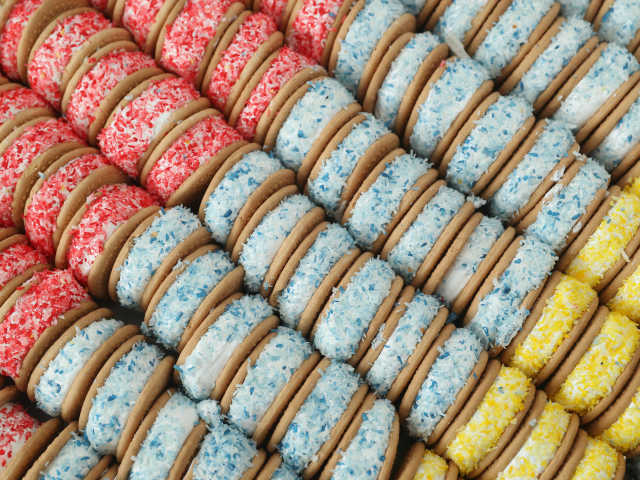Theresa May has ditched a number of key elements of the proposed anti-obesity strategy, considering them to be “nanny state” policies. Anti-sugar campaigners have reacted furiously, but anti-sugar tax campaigners have welcomed the move.
A proposed ban on junk food advertising before the 9pm watershed has been scrapped, as have mandatory targets to reduce the amount of sugar in foods. Instead, the government has set a voluntary target for food manufacturers to reduce the amount of sugar in products such as cereals, yoghurts, sweets and deserts by a fifth by 2020, although it warned that failure to reach the targets may result in mandatory measures.
Plans to ban junk food and sweets from supermarket checkouts have also been ditched, but the government is pressing ahead with a proposed ‘sugar tax’ on soft drinks, for which it today issued a consultation. Primary school pupils will also be expected to offer pupils an hour of exercise a day, according to the Telegraph.
Anti-sugar campaigners have spoken of their disappointment, going so far as to accuse the government of failing children.
Malcolm Clark, spokesman for the Children’s Food Campaign, railed: “This is a Government obesity plan, not a strategy. This is a truly shocking abdication of the Government’s duties to secure the health and future of the next generation.”
And celebrity chef Jamie Oliver, who has been at the forefront of lobbying for a sugar tax, took to Facebook to say he was “in shock”.
Arguing that the government should intervene in the food industry to set targets on sugar content and limit promotions, Oliver said: “The long-awaited Childhood Obesity Strategy from Theresa May’s new Government is far from robust, and I don’t know why was it shared during recess. It contains a few nice ideas, but so much is missing. It was set to be one of the most important health initiatives of our time, but look at the words used – ‘should, might, we encourage’ – too much of it is voluntary, suggestive, where are the mandatory points?
“Where are the actions on the irresponsible advertising targeted at our children, and the restrictions on junk food promotions? The sugary drinks tax seems to be the only clear part of this strategy, and with funds going directly to schools that’s great, but in isolation it’s not enough.
“This strategy was Britain’s opportunity to lead the way and to implement real, meaningful environmental change, to start removing the crippling financial burden from our NHS and reversing the tide of diet-related disease. With this disappointing, and frankly, underwhelming strategy the health of our future generations remains at stake. I sincerely hope the Government’s promise to ‘take further action where it is needed’ is true…”
But UK Independence Party MEP Bill Etheridge has argued that bans and restrictions within the food industry are not the only way to tackle obesity. Pointing out that school playing fields are still being sold off at a rate of one every fortnight, he suggested that if the government really wanted to tackle obesity it would do better to prevent that.
“The sugar levy is another sin tax designed to take more money from our pockets, disguised as a way to ‘promote health’,” he said.
“Not only is a tax like this regressive, impacting most on the poorest people in society, it also screams of the nanny state controlling what we should eat, drink and do.
“We should have less government, not more. The way to make kids healthier is to get them out playing sport not declaring war on fizzy pop.
“They could start by insisting on more sport in the curriculum rather than selling off playing fields.
“According to the government’s own figures, the twelve months before October 2015 saw a total of 27 schools having their application to sell of sports fields or lands approved – that’s an average of one every two weeks.”
Brook Whelan, Chief Executive of People against Sugar Tax welcomed the fact that some of the more extreme measures had been ditched, although he urged people to engage in the government’s consultation on whether or not to introduce a new Soft Drinks Industry Levy in 2018 nonetheless.
“We are very pleased to see that some of the more extreme measures such as advert bans have not been included in the strategy. This is good news for consumers, and for businesses,” he said.
He added: “We see that the consultation for the sugar tax is still going ahead though, and so we encourage as many people to send their responses to the Treasury as possible.”

COMMENTS
Please let us know if you're having issues with commenting.